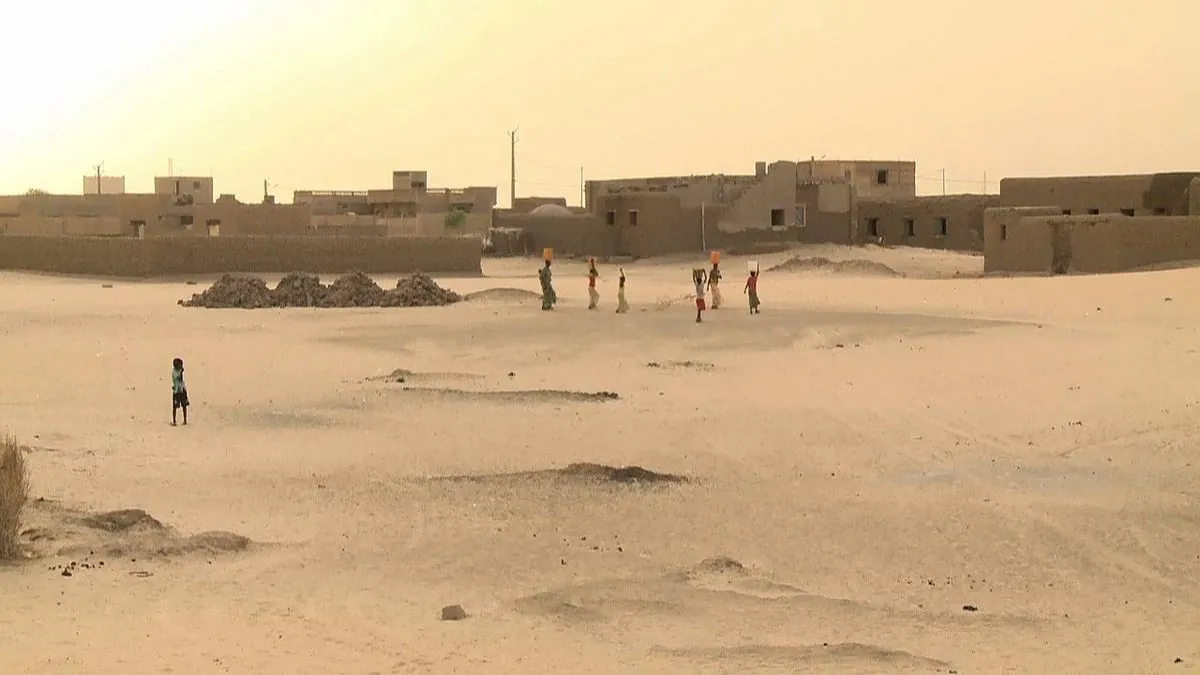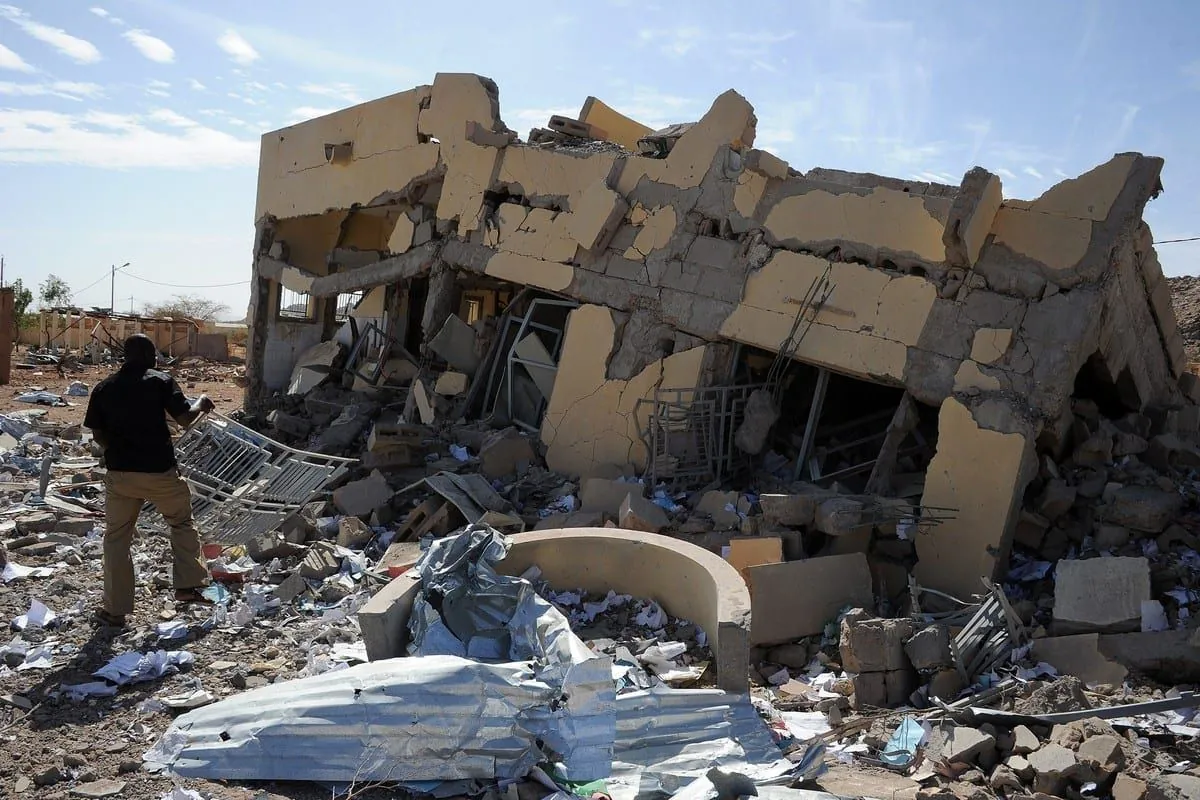Deadly Airstrikes in Northern Mali: Civilian Casualties Reported
Airstrikes in northern Mali near the Algerian border have resulted in civilian casualties, including children. Conflicting reports emerge as tensions escalate in the region.

On August 25, 2024, airstrikes targeted the village of Tinzaouatine in northern Mali, resulting in civilian casualties. According to a spokesperson for a coalition of Tuareg-majority pro-independence groups, 21 civilians, including 11 children, lost their lives in the attack. This incident marks the most significant civilian loss since the collapse of a peace agreement between Mali's ruling military junta and armed pro-independence groups in 2023.
The Strategic Framework for the Defense of the People of Azawad, a coalition advocating for the independence of northern Mali, reported that the strikes initially targeted a pharmacy, followed by subsequent attacks on individuals gathering near the initial impact site. Mohamed Elmaouloud Ramadane, the coalition's spokesperson, stated that the strikes caused extensive material damage in addition to the loss of life.

Mali's armed forces confirmed conducting airstrikes in the Tinzaouatine area on the morning of August 25, 2024. However, they asserted that these were "precision strikes targeting terrorists," contradicting the coalition's claims of civilian casualties.
This incident occurs in the context of ongoing tensions in the region. Rida Lyammouri, a senior fellow at the Policy Center for the New South, suggests that the use of airstrikes may increase due to the limited ground presence of Malian forces and Russian mercenaries in the Kidal region. This strategy could be seen as a response to recent setbacks faced by these forces against Tuareg rebels and fighters from the al-Qaida-linked group Jama'at Nusrat al-Islam wal-Muslimin.
The situation in northern Mali is complex, rooted in a long history of conflict and political instability. The Tuareg people, a Berber ethnic group inhabiting the Sahara desert, have been involved in intermittent rebellions since 1962. In 2012, a short-lived unrecognized state called Azawad was declared in northern Mali, highlighting the ongoing struggle for autonomy in the region.
Mali's recent history has been marked by political upheaval, with several coups d'état since gaining independence from France in 1960. The country faces significant security challenges, particularly in the Sahel region, which includes northern Mali. These challenges are compounded by the presence of various armed groups and the involvement of international actors, such as the Russian paramilitary organization known as the Wagner Group.
The ongoing conflict has had severe implications for Mali's rich cultural heritage. Timbuktu, a UNESCO World Heritage site located in northern Mali, has been affected by the instability. The region is also home to the ancient Dogon people, renowned for their astronomical knowledge, and boasts the Great Mosque of Djenné, the world's largest mud-brick building.
Despite the challenges, Mali remains a country of significant economic potential, being the third-largest gold producer in Africa. The Niger River, Africa's third-longest river, flows through the country, providing vital resources to the region.
As tensions continue to escalate, the international community watches closely. The recent airstrikes and their aftermath underscore the urgent need for a peaceful resolution to the ongoing conflict in northern Mali, balancing the aspirations of various groups with the imperative of civilian protection and regional stability.
"The General Staff of the Armed Forces confirms airstrikes in the Tinzaouatine sector on the morning of August 25, 2024. These precision strikes targeted terrorists."


































